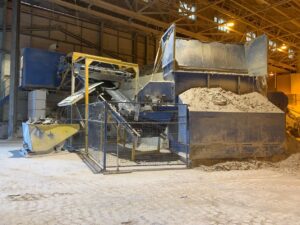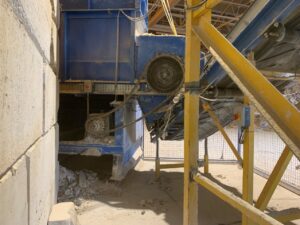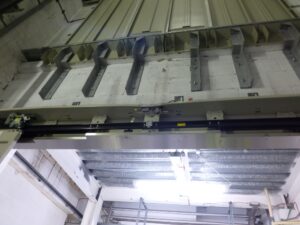Recycling company fined after worker’s arm dragged into machine
A recycling company in Weston-super-Mare has been fined £24,000 after one of its workers suffered serious injuries after his arm was dragged into a machine.
The 34-year-old local man suffered multiple fractures to his right arm that required surgery to repair. He had stopped a conveyor belt to remove some trapped material and his arm became trapped when a colleague inadvertently re-started the machine.
The man had been working for New West Gypsum Recycling (UK) Limited when the incident happened on 11 November 2021. His arm became entangled in the trapping point between a conveyor belt and the rotating drum powering the movement of the belt.

An investigation by the Health and Safety Executive (HSE) found that dangerous parts of the conveyor were not properly guarded and were easily accessible to employees. The company did not have adequate procedures for electrical isolation and locking off machinery before working on it.
Taunton Magistrates heard that the company had failed to fit the machine with adequate guards to prevent access to dangerous parts and failed to implement a suitable procedure, for isolating and locking off the machine from the power supply, before starting any intervention to remove blockages.

New West Gypsum Recycling (UK) Limited, of The Taxiway, Weston-super-Mare, pleaded guilty to breaching Regulation 2 of the Health and Safety At Work Act 1974. They were fined £24,000 and ordered to pay costs of £4,600 at Taunton Magistrates Court.
Speaking after the hearing HSE inspector Dawn Lawrence said “This incident was completely preventable.
“The injuries sustained could have been much worse and should never have happened. Failure to securely isolate and lock off is a primary cause of many machinery incidents in the waste industry.
“Companies shouldn’t overlook important machinery safety basics, including adequate guards to prevent access to dangerous parts and a suitable procedure for isolating and locking off the machine from the power supply before starting any intervention.”
The case was prosecuted by HSE enforcement lawyer Samantha Wells and supported by HSE paralegal officer Helen Jacob.
Notes to Editors:
- The Health and Safety Executive (HSE) is Britain’s national regulator for workplace health and safety. We prevent work-related death, injury and ill health through regulatory actions that range from influencing behaviours across whole industry sectors through to targeted interventions on individual businesses. These activities are supported by globally recognised scientific expertise.
- More information about the legislation referred to in this case is available.
- Further details on the latest HSE news releases is available.




